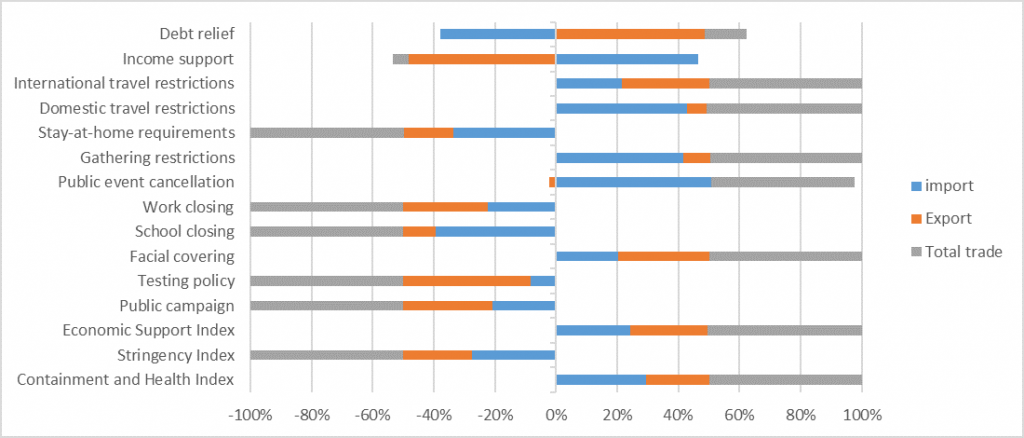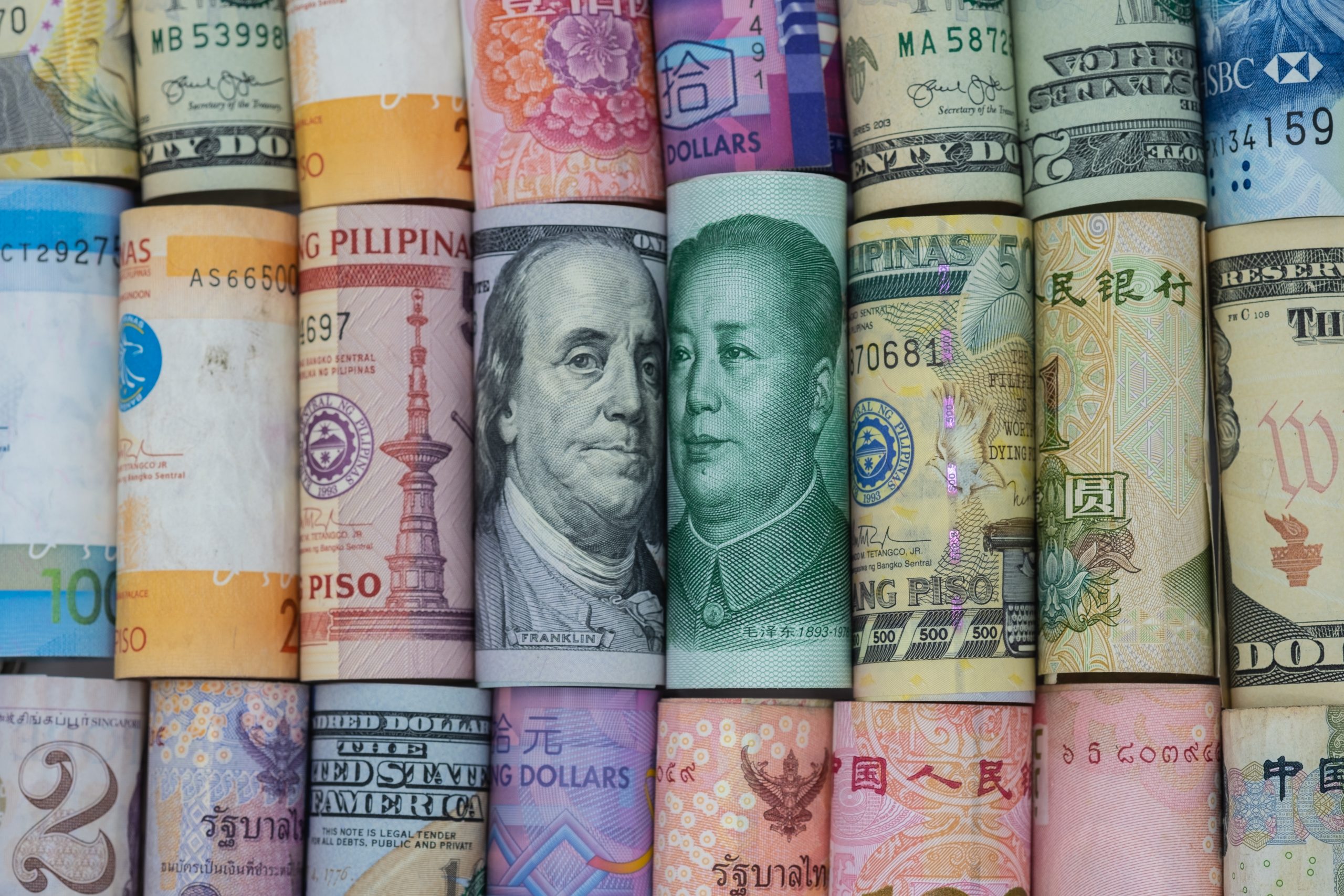The TRADE Hub research team is using expertise from a range of social and environmental sciences to better understand the COVID-Trade-Policy nexus. The team have conducted COVID-focused research on wildlife and the wildmeat trade which has had impact on how to address these issues in relation to pandemic prevention. This blog focuses on the impacts of COVID-19 on the economies of all countries of the world and has been led by TRADE Hub researchers from the Asian Institute of Technology. We assess the effects of COVID-19 government measures on the values of import, export and total trade. The work examines the impacts of public health and trade interventions on country-level trade flows and aim to identify relationships between COVID-19 trade measures and COVID-19 infections and deaths. The research hopes to inform policymakers on the design of policies to tackle COVID-19, or other pandemics, without damaging local economies and international trade, with further research planned to incorporate biodiversity indicators into these considerations.
Currently, there is limited research undertaking quantitative examinations of the impacts of pandemic-related measures on global trade flows. The research sets out to identify policy and specific measures that had significant impacts on import and export values in 2020 amid the COVID-19 pandemic. The study contributes to the ongoing policy development aimed at effectively controlling the spread of COVID-19, while maintaining economic prosperity.
It is commonly accepted that governments responded to a surge in cases and deaths due to COVID-19 by enforcing control measures. However, there is no consensus as to what control measures are more effective, and to what extent, in reducing the number of new cases and deaths. This study investigates the causal effects between non-pharmaceutical interventions (NPIs) and the extent of COVID-19 pandemic as measured by number of new cases and deaths, using global data sources.
Effectiveness of different government responses
We first studied effects of the specific public measures on trade flows. The findings illustrate the positive and negative impacts of COVID-19 public measures on import, export, and total trade. Containment and health related measures had statistically significant and positive impacts on import, export, and total trade values. On the other hand, stringency measures including lockdown and social distancing had negative impacts on import, export and total trade. National economic support measures had no statistically significant effect on trade. More specifically, school closing, stay-at-home, and testing policies exhibited significant and negative impacts on trade flows. In contrast, facial covering policy showed significant and positive impacts on imports, exports, and overall trade. These first results were obtained for data obtained from the fourth quarter of 2020, when the world was in the middle of the second main wave of COVID infections.

Figure 1: The effects of COVID-19 public intervention indices and specific measures on trade flows.
Second, we looked at the impacts of how strictly lockdown policies were enforced. Preliminary results show that increased levels of the Stringency Index, a measure that records the strictness of lockdown policies, led to a decrease in the number of COVID-19 new cases. Likewise, the Economic Support Index, which measures levels of economic support such as debt relief, had negative effects on the number of new cases. Conversely, a surge in COVID-19 cases resulted in increased levels of the Stringency Index and Containment & Health Index, and decreased levels of the Economic Support Index. Further investigation of these preliminary findings is underway. These preliminary results were obtained during the second quarter of 2021, nearer to the end of the second wave.
From the international trade perspective, the findings suggest policy makers should carefully consider or reconsider the stringency measures such as business closure and movement restrictions, whilst they should be proactive in implementing containment and health-related measures. While no statistically significant impacts of economic support policies on trade were observed, it is obvious that such policies should boost consumption behaviours, even if these are not statistically significant.
Future research
The second stream of research is ongoing and aims to inform global, regional and national policies to effectively control the pandemic and minimise the adverse effects on trade and economies. Findings are expected to contribute to the fields of public health as well as management of global economic crises, which will allow the public to better understand the underlying relationships between the implementation of non-pharmaceutical interventions and the incidences of infections and deaths from COVID-19.
Plans for third research streams include the incorporation of biodiversity indicators, to examine the interlinkages between COVID-19 and its prevalent variant strains, human well-being, wildlife and agricultural trade and pre-supposed changes considering different aspects of biodiversity.
As part of a planned third stream of this research, researchers plan to obtain and analyse individual-level data to assess the influences of demographic factors on the economic and COVID-19 outcomes, which will pay explicit attention to sub-populations based on gender, age segments, and pre-existing medical conditions.
Ultimately, this research stream is expected to inform the design of adequate policy responses that would effectively subside the effects of the COVID-19 pandemic without jeopardising national economies, international trade, biodiversity and social wellbeing in developing countries.
The content and the opinions expressed in this blog are the responsibility of the authors and researchers involved in this work stream (Worawat Srisawasdi, Takuji Tsusaka and Sylvia Szabo, Aisha Niazi, Amayaa Wijesinghe).
